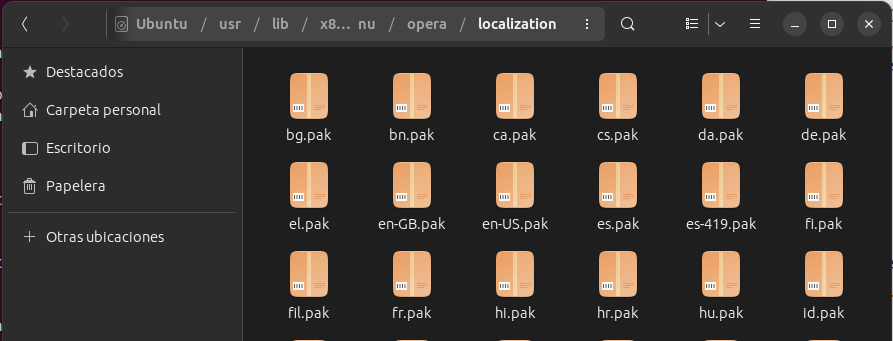Can't change UI language. No option "Display opera in that language"
-
A Former User last edited by
Hi
The problem continues on Opera-Stable Version: 94.0.4606.76 for Linux. Tested on VM in several Linux distributions and with the same problem and not changing the requested language. keeping only the language in English
Can the developers of this browser fix this problem, gentlemen forum administrators?
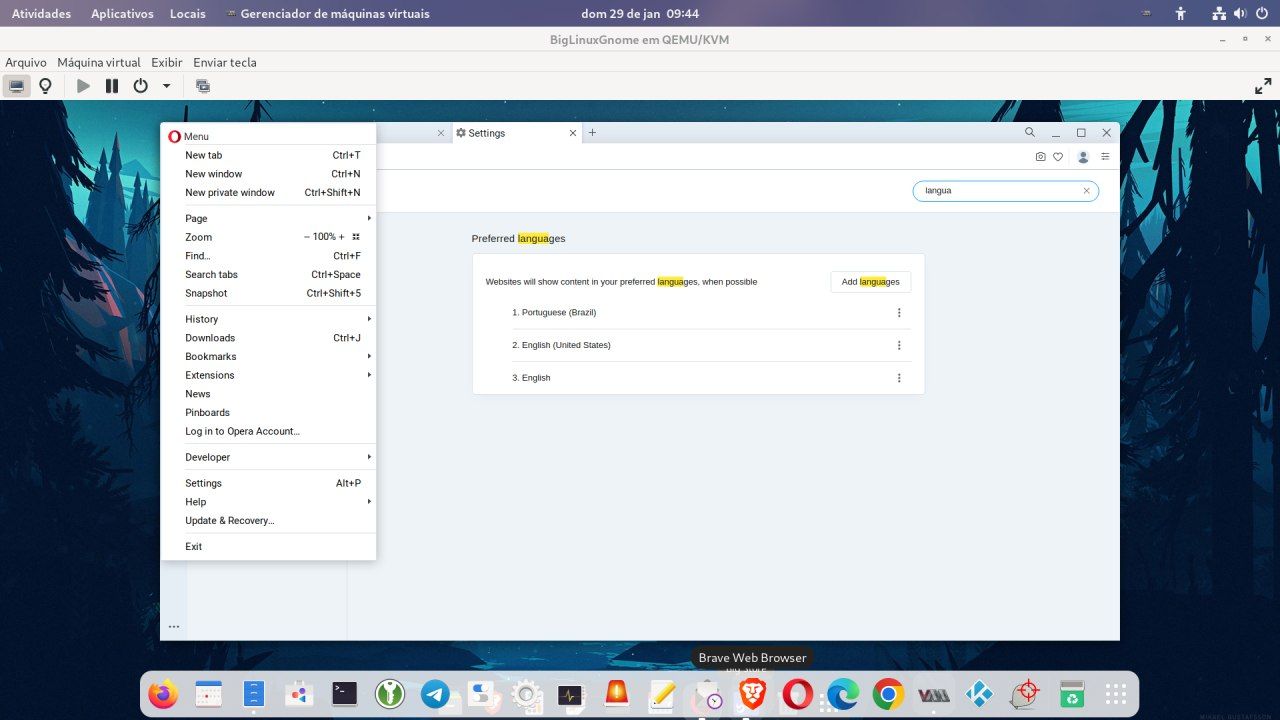
-
burnout426 Volunteer last edited by burnout426
I did some testing. "Display Opera in this language" option isn't available in Chromium-based browsers on Linux (like Chrome, Chromium, Vivaldi, and Opera). It's available on the Windows versions though.
With that said, on Linux, you have to use the
--lang=codecommand-line switch.After adding German to
opera://settings/languagesand moving it to the top, I closed Opera and tested--lang=dewith Opera and it works as expected. The UI was in German. This also worked for me in Vivaldi. I couldn't get it to work for Chrome and Chromium though for some reason. I tested on Linux Mint Cinnamon 21.1.On a side, I tried setting
app_localetodein the "Local State" file in the profile folder, which seems to be what Windows does for the "Display Opera in this language" option, but that didn't help. So, I guess it's indeed required to use the --lang command-line switch. -
saulodebaco last edited by
@burnout426 Many tks, friend. The option --lang=pt-BR worked like a charm!
To make it easier I have added this to file /usr/share/applications/opera.desktop/
Exec=opera --lang=pt-BR %U -
scitari last edited by
Heja,
The Opera browser I have running under Linux (Linuxfs, Ubuntu-based), is missing the option to change browser/interface language.
The option I have with Opera under Windows 10 (= selecting browser language in "preferred languages" within settings) seems to be missing.
Google Search didn't really reveal promising answers.
What do I need to do to change Opera language?
Best regards
Christian -
scitari last edited by
@leocg Yes, thanks, did, I understand the workaround, but in my case Opera is set-up in a snap, and editing files as root in a read-only environment is actually not really user-friendly.
Having the same browser setting in the Linux version as in the Windows version would likely help adoption by other users. Just a gentle nudge to Opera developers.
Best
Christian -
reinaldofox last edited by leocg
Opera cares so much about filling the app with nasty and unnecessary things and doesn't pay attention to such a basic and crucial thing.
-
Saragoo last edited by
OK, there is something that may work.
I opened my filemanager (Nemo or Thunar or ...) with the terminal (sudo nemo) and then i go to /usr/share/applications
Right-click on Opera and open the attributes menu (in German "Eigenschaften", i do not know if the translation is correct).
Change the command opera %U into opera --lang=de (de for german, choose your language)
Close this. Now Opera should open in the correct language. I hope it works. -
Saragoo last edited by
Tried to post a solution here, but Opera Forums doesn't want to publish it. Only thing Opera cares is to place promotion into the Browser.
-
philou-69210 last edited by
@saragoo Hello, this workaround was already post here. Developers of Opera don't take care of their Linux Users. It's a shame.
-
HomeStudiocz last edited by
yes this work mee use Endevvour OS and only rewirite to
Exec=opera --lang=cs %U save it and run opera and opera run with my native language czech
-
Referenced by
 diezi
diezi -
Referenced by
leocg
-
kocis2023 last edited by
@philou-69210 In Artix with openrc, it was enough to click PM on the Opera icon on the desktop and in the attributes of this icon, complete the following command: exec=opera --lang=pl %U.
And it works. It turned out that there was no need to enter the system. -
philou-69210 last edited by
@kocis2023 Hi Kocis, it was enough for me to edit the application file each time Opera release an update. I imported my bookmarks in Firefox and uninstalled Opera from all my devices.
-
trsword52 last edited by
Create create folders, select edit launcher to provide desktop.
Type opera %U --lang=(your lang) in the command line and save it.
With this shortcut you have created on your desktop, the transponders are opened in Opera Your Lang
Example:
Type opera %U --lang=tr -
josegjimenez last edited by
Greetings to all, I solved it by renaming the file en-US.pak to en-US_bak.pak and then I renamed the file es.pak to en-US.pak and I now have opera in Spanish

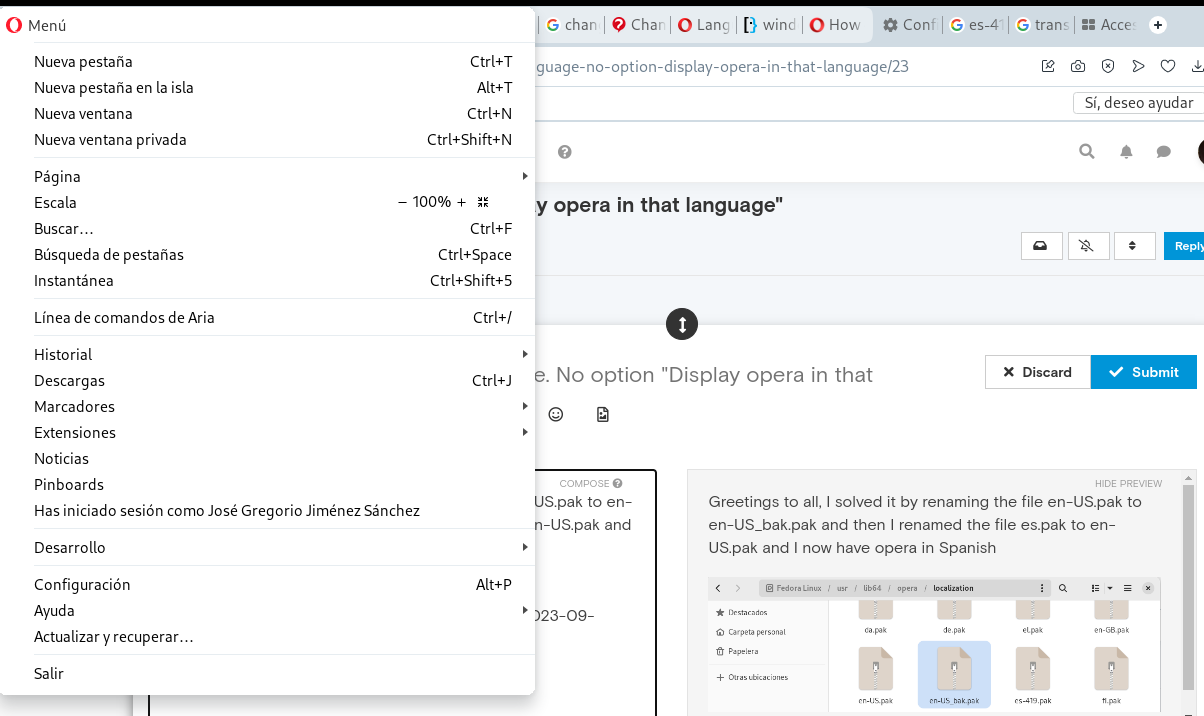
-
bilalerdiyildiz last edited by
Hello,
I use Fedora 38 Workspace (Gnome). I have tried all the solutions here, but there is no solution. Opera One is still in default language. Is there any other method other than these that I should do? -
tobiasitalo last edited by leocg
[Hello,
Neither in the stable version nor in the dev version am I successful in carrying out the procedures I found on the internet (and those in this forum as well).][For example, access the settings and set Portuguese as the preferred language.]
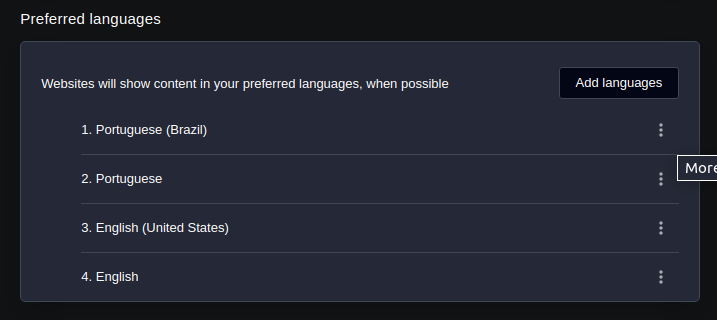
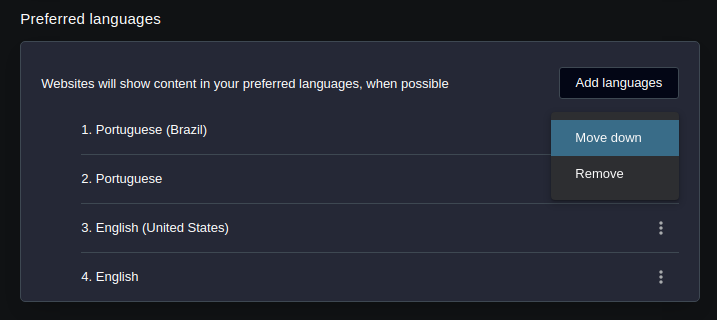
[My Operating System is in Portuguese natively.
Below are the versions I'm currently using of the OS and Opera (with all updates available to date):]
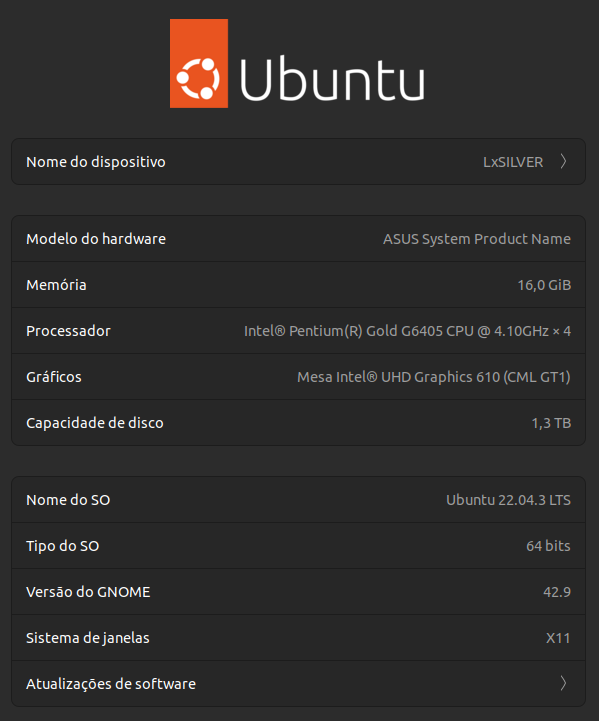
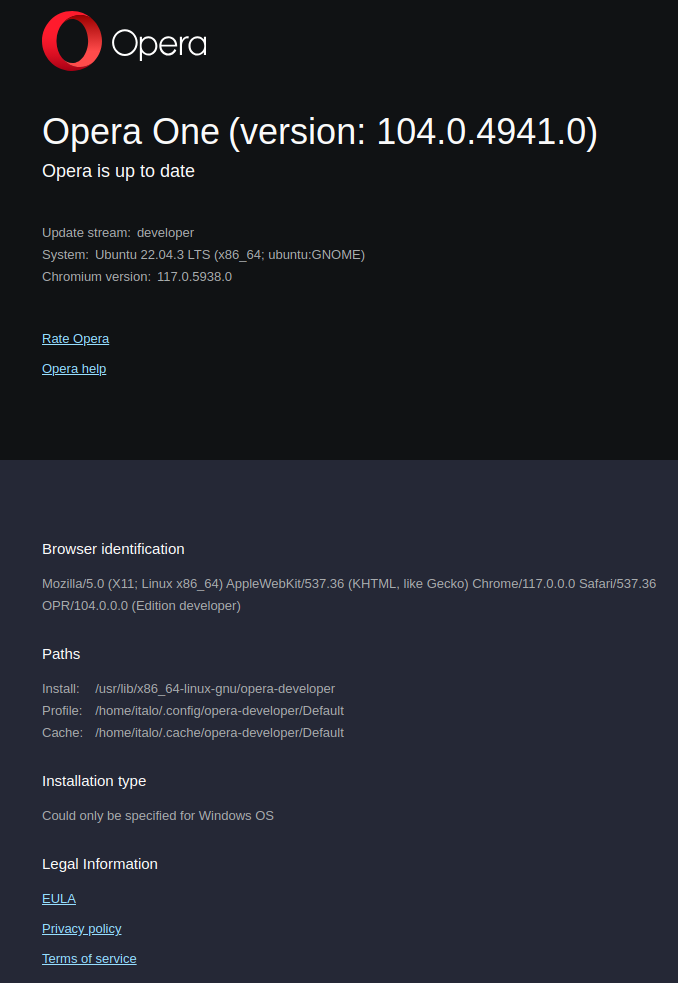
-
tobiasitalo last edited by
Acabei de revisar as configurações de região e idioma e estão todas em português do Brasil.
[I just reviewed the region and language settings and they are all in Brazilian Portuguese.]
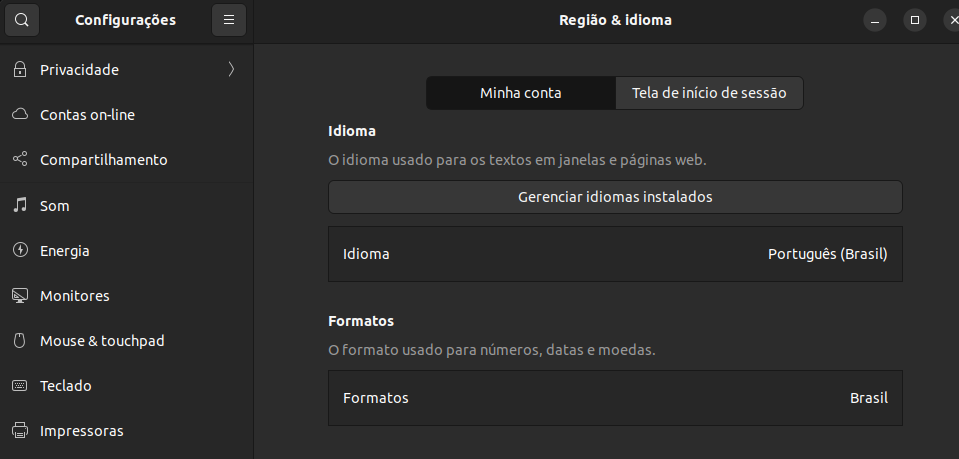
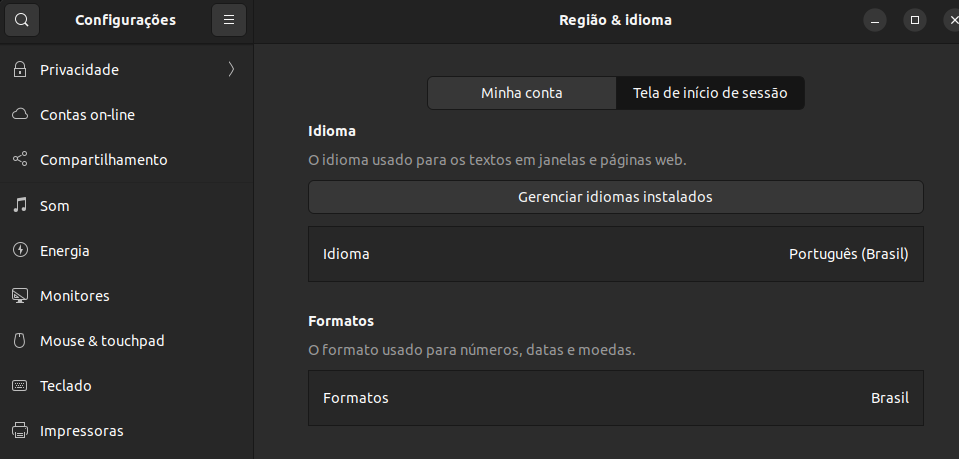
-
LogoJorge last edited by
@josegjimenez this method is very good, thank you. but some distributions have different location
for Mx Linux (debian based) path is /usr/lib/x86_64-linux-gnu/opera/localization/
